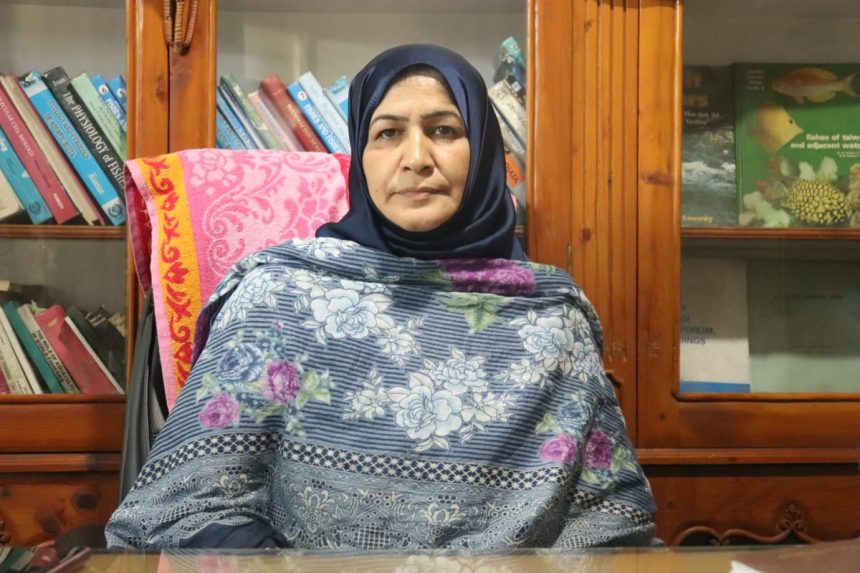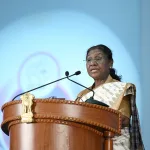Srinagar, May 18: The department of Fisheries has ramped up its efforts to curb illegal fishing activities in famous Dal Lake and surrounding areas, seizing over 3,400 gill nets and collecting fines worth Rs 1.71 up to March last year.
This was stated by Nahida Akhtar, Deputy Director of the department under Project Gagribal, Srinagar. Speaking to Rising Kashmir, Akhtar said the department operates under a routine monitoring system, but responds immediately to any report of illegal fishing.
“Whenever we get a call from anywhere that illegal fishing is going on, our staff is alerted and takes prompt action. Officers are dispatched to the location and nets are seized,” she said.
In addition to regular patrolling, the department forms anti-poaching squads every year. “The Chief Project Officer (CPO) also forms a dedicated unit and the Director of Fisheries creates a major anti-poaching party at the state level. This year too, such a party was recently constituted and has been conducting raids,” Akhtar added.
The Dal Lake area is under constant surveillance, with stationed staff regularly seizing illegal gear. “Last year till March, we seized around 3,400 gill nets from Dal Lake and imposed fines up to Rs 1.71 lakh. Despite our efforts, illegal fishing continues, often driven by internal complaints from one group of fishermen against another,” she said.
The department also conducts regular awareness drives to discourage the use of gill nets. “We inform the fishermen that gill nets trap juvenile fish, preventing them from maturing and affecting fish stock regeneration. We encourage local communities to monitor each other and avoid such practices,” she said. Highlighting the breeding season that begins in late April particularly for carp, Akhtar stressed that fishing is completely banned during this period, which lasts for about two-and-a half month. “This ban is enforced through both our state law and central government directives,” she explained. To support fishermen during the ban period, the government provides financial assistance. “Each year, about 3,000 registered fishermen are covered under this scheme to help them sustain their families during the non-fishing period,” she said.
Despite restrictions, some still attempt fishing using rods, especially in Dal Lake. Akhtar said rod fishing does not typically result in catching juvenile fish but is still regulated. “We have increased the fee for rod licenses from Rs 300 to Rs 600 per person annually. Our teams frequently check if individuals using fishing rods hold valid licenses.”
All licenses for Dal Lake fall under Project Srinagar and are issued by the office of the Inspector Fisheries at Gagribal. “Those interested must approach our office for rod or general fishing licenses,” Akhtar clarified. “Our field staff works tirelessly day and night to ensure illegal fishing is prevented across all parts of Dal Lake. Whenever we receive information, we act swiftly to correct the situation,” she said.








